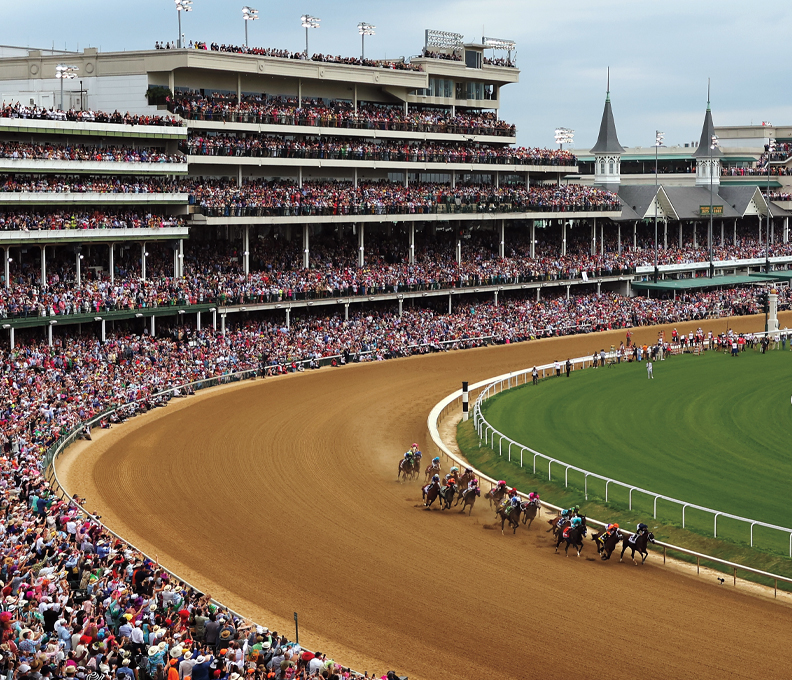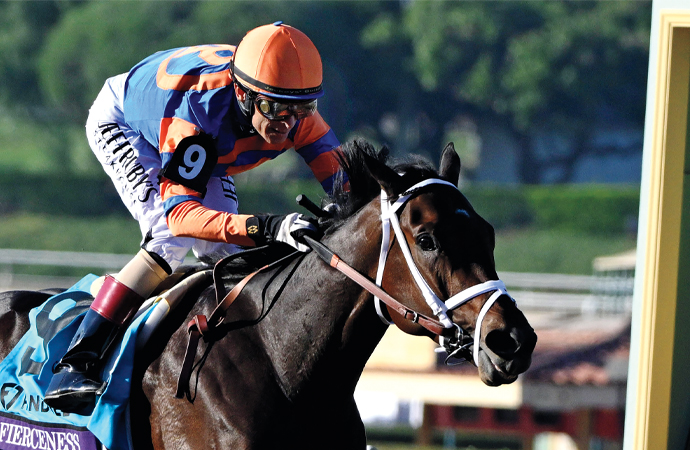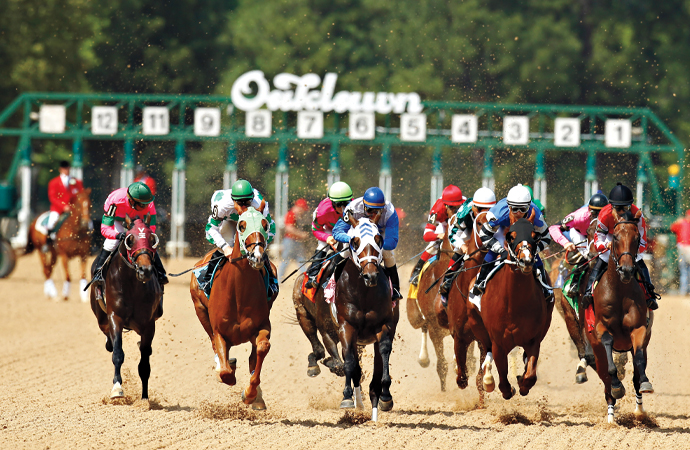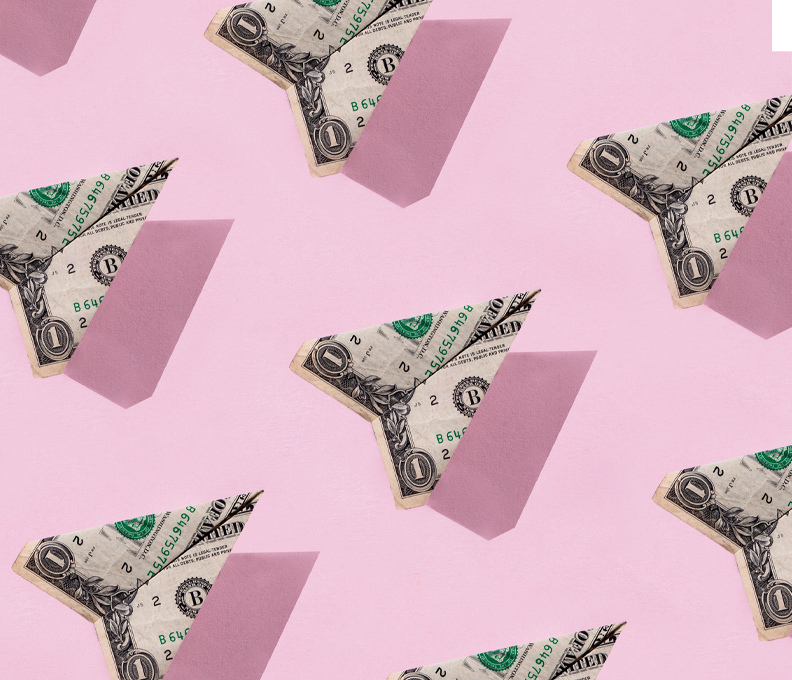The Road to the Kentucky Derby
A billion-dollar event, the Derby is consistently the second-most-watched sporting event after football
April 16, 2024

2023 Kentucky Derby, Churchill Downs, Louisville, Kentucky / Photo: Courtesy of Pasadena Star News via Getty Images
In May, America’s oldest sport celebrates the 150th running of its biggest race—the Kentucky Derby at Churchill Downs in Louisville. No one wants to win it more than Mike Repole, a Queens-born billionaire who cofounded Vitaminwater. No one has put more money and time into the sport in recent years. He has even appointed himself the “commissioner” of horse racing.
On February 3, his horse Fierceness, the early Derby favorite, was about to compete in the Holy Bull Stakes, one of the run-up contests in the Road to the Kentucky Derby series. Packed in a grandstand box at Gulfstream Park in South Florida, dozens of family and friends surrounded Repole, backslapping one another’s Long Island business-casual finery and cheering in pre-celebration unison.

Fierceness winning the 2023 Breeders’ Cup Juvenile, Santa Anita Park, Arcadia, California / Photo: Courtesy of Keith Birmingham Media News Group
Golden hour tinted the sky pink. The jockeys’ silks glowed atop the seven horses as they paraded to the starting post. “And they’re off in the 33rd running of the Holy Bull…” announcer Pete Aiello called in a gravelly baritone. “Fierceness starts to shift gears and there he goes…for a neck advantage…not out of second gear yet…coming up empty now…Hades wins the Holy Bull!” Silence from the Repole clan.
The quest to the first Saturday in May starts in earnest on the first Saturday in February, as four historic tracks run stakes races for three-year-old horses. There’s relentless complexity along the Road to the Kentucky Derby, with 37 races from September until April awarding points to the top five finishers.
Fierceness’ loss was just a quarter of the cross-country drama. There were dual upsets at Aqueduct in New York and Oaklawn in Hot Springs, Arkansas, while out in California at Santa Anita, Bob Baffert won a points race that earned no points to the winner. Baffert, the two-time Triple Crown-winning trainer whose white Beatles mop and purple sunglasses were mocked on SNL, remains banned by Churchill Downs Incorporated (CDI) after 2021 Derby winner Medina Spirit’s positive drug test.

Oaklawn Park, Hot Springs, Arkansas / Wesley Hitt_Getty Images
This year, 346 horses were nominated to the Triple Crown series, which over five weeks moves from Churchill Downs to the Preakness in Baltimore and Belmont Stakes in New York. Those nominees hope to be one of the 20 Derby starters seeking victory. The nature of the sport’s unpredictability—from trainers to jockeys, track biases to weather—makes getting to the Kentucky Derby a challenge but enriches the win.
Churchill Downs is one of the largest sporting venues in North America, with a capacity of 150,000, the size of an army base. A billion-dollar event, the Derby is consistently the second-most-watched sporting event after football. CDI has invested hundreds of millions in track upgrades for Derby 150, including a $200 million paddock renovation.
“The $188.7 million handled in 2023 is more than double that of any other race,” says Ed DeRosa, who spent a decade working for CDI and now runs the website Horse Racing Nation. “But there is so much more to Churchill’s bottom line than the betting. The licensing deals cover all sorts of souvenirs, from the famous Derby glasses to apparel, jewelry, plushies, tchotchkes and more.” Fees from scores of major sponsors and NBC’s eight-figure licensing deal—plus a full week of racing—culminate with the 14-race Derby 150 card, where tickets average $2,795, per SeatGeek.
These revenue streams aside, it is the betting that makes the sport. Other sports rely on ticket sales, television deals and merchandise to make money. Racing would not exist without wagering. The sport doesn’t just have “fans,” but rather horseplayers who fund it.
Last year, Kentucky Derby favorite Forte, owned by Repole, was scratched the day before by the track’s vet. The victor was another Florida-based horse, Mage, who ran second to Forte in the Florida Derby, the final Gulfstream prep race. At 15-1, Mage looked like a minor upset compared to 2022, when long shot Rich Strike won on an 80-1 superfecta and paid $321,500 on a $1 wager.
“On Derby day it’s the 20 best horses on that day,” Mage co-owner Ramiro Restrepo says. “Everyone trains for one day, that’s it.”
Restrepo, 45, comes from a Colombian racing family and broke into the Kentucky blue-blood horse world a decade ago. He spent last winter on a globe-trot to the snow races in St. Moritz and the big races in the desert, the Saudi and Dubai cups.
In January, Gulfstream hosted the Pegasus World Cup, an Ibiza-meets-Palm Beach racing rager headlined by horses—and DJ Calvin Harris. Restrepo unleashed Victory Avenue in a maiden race (for horses who have never won). He ran impressively fast for second. “He isn’t like Mage,” Restrepo says. “He’s a little goofy, not as mature, and might take more time to develop.”
Victory Avenue was entered in the Fountain of Youth Stakes, the second major prep at Gulfstream Park, but became ill and, along with almost half the field of nine, was scratched before the race. The winner, Dornoch, ran well but not sensationally, and at press time is the tepid Kentucky Derby favorite.
Other races on the Road to the Derby—in Louisiana at Fair Grounds and two more at both Oaklawn and Aqueduct—failed to produce standouts. Baffert won again at Santa Anita but gained no points due to the ban, leaving the California circuit with no possibility of Derby entrants.
The only thing guaranteed on the Road to the Derby is the uncertainty. With the biggest preps ahead—the Santa Anita Derby; the Wood Memorial in New York; and the Blue Grass Stakes at Keeneland in Kentucky—now is the time to see which horse you like on the first Saturday in May.




